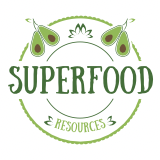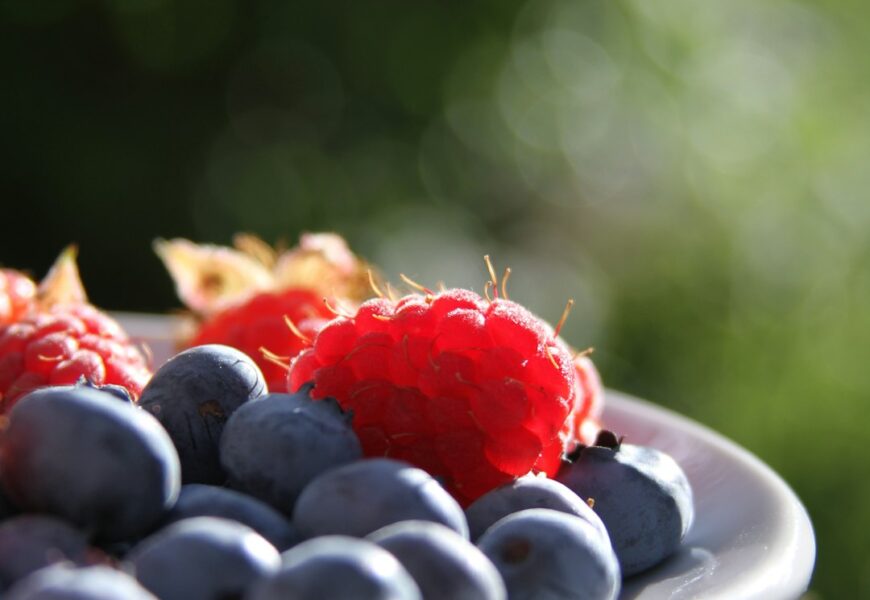Beginner’s guide to superfoods: What you need to know
Introduction
Welcome to the vibrant world of superfoods! If you’re just beginning your journey towards a healthier lifestyle, understanding superfoods can make a significant difference. But what exactly are superfoods? Simply put, they are foods—mostly plant-based but also some fish and dairy—that are thought to be nutritionally dense and thus good for one’s health. From avocados to quinoa, these nutrient powerhouses pack more than just a punch of good health; they come loaded with benefits designed to enhance your wellbeing. Whether it’s adding a burst of antioxidants, vitamins, or minerals into your diet, incorporating superfoods can offer major health benefits. Let’s explore what you need to know to start incorporating these potent foods into your daily meals!
What are Superfoods?
 Image courtesy: Pexels
Image courtesy: Pexels
Definition and Characteristics
Superfoods are primarily plant-based but also include some fish and dairy. They are nutrient powerhouses that pack large doses of antioxidants, polyphenols, vitamins, and minerals. Eating them may reduce the risk of chronic disease and prolong life, and people who eat more of them are healthier and thinner than those who don’t. These foods not only provide top-tier nutritional density but are also highly efficient in delivering essential nutrients to our bodies, which enhances overall health.
Importance of Superfoods in Healthy Eating
Incorporating superfoods into your diet can significantly impact your health by boosting nutritional intake, reducing inflammation, and improving the immune system. They help in maintaining a healthy weight and can decrease the risk of heart diseases, as their nutrient composition fights buildup of fats and cholesterol. Superfoods are also known for their role in promoting digestive health due to their high fiber content, which aids in better gut health and enhances metabolic processes.
Top 10 Superfoods for Beginners
Blueberries
Blueberries are a prime example of superfoods, thanks to their high levels of flavonoids—natural compounds associated with heart health and reduced inflammation. Besides being rich in vitamins C and K, they also offer a good dose of fiber. Eating blueberries can help improve mental acuity, manage diabetes, and bolster heart health.
Spinach
This leafy green is loaded with iron, magnesium, and vitamins A, C, and K. Spinach is beneficial for bone health, reduced stress, and improved blood oxygen levels. It’s versatile enough to be included in a variety of dishes, from smoothies to salads and cooked meals.
Quinoa
Quinoa is a seed that behaves more like a grain but stands out due to its complete protein profile, containing all nine essential amino acids. It’s full of fiber, B-vitamins, iron, potassium, calcium, phosphorus, vitamin E and various beneficial antioxidants.
Chia Seeds
Chia seeds are tiny but mighty in terms of nutrition. They’re rich in omega-3 fatty acids, fiber, protein, and calcium. Chia seeds can help reduce inflammation, enhance cognitive performance, and improve heart health. They’re easy to incorporate into your diet, adding a nutritious boost to smoothies, yogurts, and salads.
Almonds
Almonds are packed with vitamins, minerals, protein, and fiber, and can help manage weight, control blood sugar levels, and reduce cholesterol. They are also extremely good for heart health and can help in preventing certain types of cancer.
Salmon
Rich in Omega-3 fatty acids, salmon can improve cardiovascular health and enhance brain function. It’s also a great source of protein and B-vitamins, which are crucial for energy production and the repair of cells.
Avocado
Avocado is unique for its high healthy fat content which supports skin health, enhances the absorption of fat-soluble vitamins, minerals, and other nutrients, and can help reduce the risk of heart disease. They are also packed with fiber and very nutrient-dense.
Sweet Potatoes
Sweet potatoes are high in vitamin A, vitamin C, manganese, and several other vitamins and minerals. They are known to boost eye health, contribute to gut health, and provide potent antioxidants that protect your body from free radicals.
Kale
Kale is a nutritional powerhouse, offering an abundance of vitamin C, vitamin A, and calcium. It also contains phytonutrients, which may help to prevent several types of cancer. Kale is versatile and can be enjoyed in salads, soups, or even baked into chips.
Greek Yogurt
Greek yogurt is much thicker and creamier than regular yogurt, packed with calcium, protein, and probiotics. It helps boost gut health and immune function, supports weight management and provides vital bacteria that aid in digestion.
How to Incorporate Superfoods into Your Diet
Incorporating superfoods into your diet doesn’t have to be complicated or daunting. Even small, simple additions can transform everyday meals into nutrient-packed powerhouses. Here are some delicious and easy ways to include more superfoods in your daily eating regime.
Smoothie Recipes
Smoothies are a fantastic method for incorporating multiple superfoods at once. They’re quick to make and can be packed with a variety of nutrients. Here’s a simple smoothie recipe to get you started:
– Berry and Spinach Superfood Smoothie:
– 1 cup of mixed berries (blueberries, strawberries, raspberries)
– 1 small banana for creaminess
– 1 handful of spinach (hardly noticeable but very nutritious)
– 1 tablespoon of chia seeds
– 1 cup almond milk or another non-dairy milk
– Optional: a scoop of protein powder or a teaspoon of matcha for an extra boost
Blend all the ingredients until smooth. This smoothie is not only rich in antioxidants from the berries but also includes omega-3s from the chia seeds, and iron from the spinach.
Salad Ideas
Salads don’t have to be boring. By adding a few superfoods, you can elevate a simple green salad to a delightful superfood salad. Consider these ingredients and combinations:
– Kale and Quinoa Super Salad:
– Baby kale leaves
– Cooked quinoa
– A handful of pomegranate seeds
– Sliced avocados
– Walnuts
– Dressing: olive oil with lemon juice, salt, and pepper to taste
Layer these items in a large bowl. Kale provides a high-density source of vitamins K, A, and C, along with fiber, quinoa offers protein, and pomegranate seeds are great for your heart.
Snack Options
Snacks are a great way to add superfoods to your diet, especially when you need a quick energy boost during the day. Here are a couple of snack ideas:
– Almond and Goji Berry Mix:
– Mix raw almonds with dried goji berries for a sweet and nutty snack rich in Vitamin C, fiber, and protein.
– Avocado Toast:
– Use whole-grain bread topped with mashed avocado, a sprinkle of chia seeds, and a pinch of salt. This snack is rich in healthy fats and fiber.
Incorporating these snack ideas into your diet is not only simple but also ensures you’re getting a mix of nutrients from natural sources.
Benefits of Incorporating Superfoods in Your Diet
Adding superfoods to your diet can have substantial positive impacts on your health. Superfoods are not only high in micronutrients like vitamins and minerals but also antioxidants and enzymes that play crucial roles in overall health.
– Enhanced Nutritional Intake: Superfoods are dense in nutrients critical for good health. Incorporating a variety of superfoods in your diet ensures you receive a broad spectrum of vitamins, minerals, and other beneficial compounds.
– Improved Health Outcomes: Regularly consuming superfoods can help reduce the risk of chronic diseases such as heart disease, diabetes, and cancer. For example, the antioxidants found in berries and dark leafy greens can help fight oxidative stress and inflammation, two key players in chronic disease development.
– Increased Energy Levels: Many superfoods, such poise acai berries or quinoa, are great sources of sustained energy. These foods provide essential nutrients that boost metabolic processes and don’t cause a sudden spike and drop in blood sugar levels, helping you maintain energy throughout the day.
– Better Digestive Health: Foods like kefir, yogurt, and sauerkraut are rich in probiotics, which help in maintaining healthy gut flora. This not only improves digestion but also enhances nutrient absorption and immune function.
Incorporating a range of superfoods into your diet can truly augment your path to a healthier lifestyle, empowering you not just nutritionally, but in your overall energy and vitality.
Tips for Purchasing and Storing Superfoods
 Image courtesy: Pexels
Image courtesy: Pexels
When diving into the world of superfoods, knowing how to select, purchase, and store them can make all the difference in maximizing their health benefits. Here are some key tips to ensure you get the most out of these nutritional powerhouses.
Choosing the Right Superfoods
When purchasing superfoods, opt for organic and locally sourced options whenever possible. These choices help ensure that the foods are not only fresher but also free from harmful pesticides and are more nutrient-dense. Check for freshness, especially when it comes to produce like berries, greens, or exotic fruits. Vibrant colors and firm textures often indicate good quality.
What to Look for in Packaging
Packaged superfoods, like chia seeds or quinoa, should be sealed properly to avoid exposure to air, moisture, and pests. Transparent packaging can be a plus as it allows you to visually inspect the quality of the food before buying. Always check the expiration date to ensure freshness and effectiveness.
Storing Superfoods Properly
● Dry Goods: Store grains, nuts, seeds, and powders in airtight containers in a cool, dark place to preserve their fatty acids and prevent spoilage.
● Fresh Produce: Most berries and leafy greens should be kept in the refrigerator. However, do not wash them until you are ready to use them to prevent mold growth.
● Frozen Items: For long-term storage, superfoods like acai and blueberries can be kept frozen. Ensure the freezer settings are at the correct temperature to maintain their nutritional content.
By following these simple guidelines, you can enhance the lifespan and nutritional benefits of your superfoods, making your healthy eating habits both enjoyable and sustainable.
Conclusion
As we wrap up our journey through the world of superfoods, remember that incorporating these nutrient-packed powerhouses can lead to significant enhancements in your health, vitality, and overall wellness. While superfoods are not a magic solution for every health issue, integrating them into a balanced diet can provide crucial nutrients that your body needs to function at its best. Start with a few of your favorites from our list and experiment to find what works for your taste buds and nutritional needs. The path to better health is delicious and diverse with superfoods by your side!










